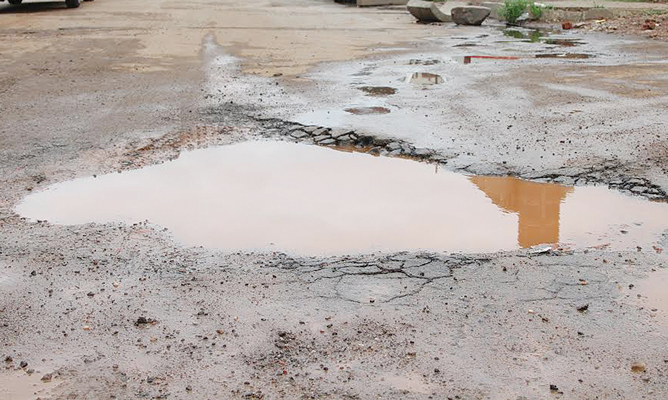
BY SHAME MAKOSHORI
WHEN Finance minister Mthuli Ncube announced in December that vehicles older than 10 years would not be allowed to enter Zimbabwe from 2021, his plan should have resonated with environmental rights campaigners.
For them, his bold move was the greatest ever decision he made since assuming his role in 2018.
Imported Japanese second-hand cars have been blamed for polluting the air and fuelling climate change.
But analysts at Morgan&Co have thrown in an important angle to the implications of his directive — the Zimbabwe Stock
Exchange-listed National Tyre Services (NTS) would suffer major blows because less vehicle importations affect the business’ revenues and volumes through less traffic for tyre repairs.
New tyre acquisitions would also drop, they said.
But, as if the minister knew, a solution to the sudden write-downs at NTS lay in his own shortcomings — his failure to fund rebuilding or rehabilitation of the country’s decaying roads.
- Chamisa under fire over US$120K donation
- Mavhunga puts DeMbare into Chibuku quarterfinals
- Pension funds bet on Cabora Bassa oilfields
- Councils defy govt fire tender directive
Keep Reading
For Morgan&Co, this is where NTS’ revenue in the coming year will stream from.
Potholes, they say, have widened and rough road surfaces will precipitate tyre punctures and bursts, which will force motorists to troop back to NTS workshops.
“Lockdown restrictions in the country have limited the movement of vehicles, with ripple effects on NTS’ business lines,” Morgan&Co said last week in a review of the firm’s financial results for the half-year ended September 30, 2020
“We also note the resurgence of Covid-19 cases which subsequently prompted more lockdown measures in Zimbabwe in 2021, and we opine that movement will remain constrained in H2 2021.
“Further, the ban of old cars under the National Development Strategy 1 is likely to limit the flow of secondhand vehicles into the country which have been a low hanging fruit for the business.
“However, the dilapidated road infrastructure, which has been worsened by the rains throughout the country, will continue to support NTS’ business case,” the review noted.
NTS is only one of several tyre dealers chasing the same market and set to benefit from government’s failure to repair roads.
What sets NTS apart is that is it publicly quoted, with an obligation to publish its financial statements.
NTS lifted tyre sales by 17% during the period.
Inflation-adjusted sales, at $189,8 million, were 21% below the previous corresponding period.
Other income, made up largely of rental income and foreign currency exchange gains, at $14,2 million, was 3 249% above the previous period, spurred by foreign exchange gains.
The firm said improved profit margins were realised on all products and service lines.
Inflation-adjusted after-tax profit ended the period at $35,3 million.











